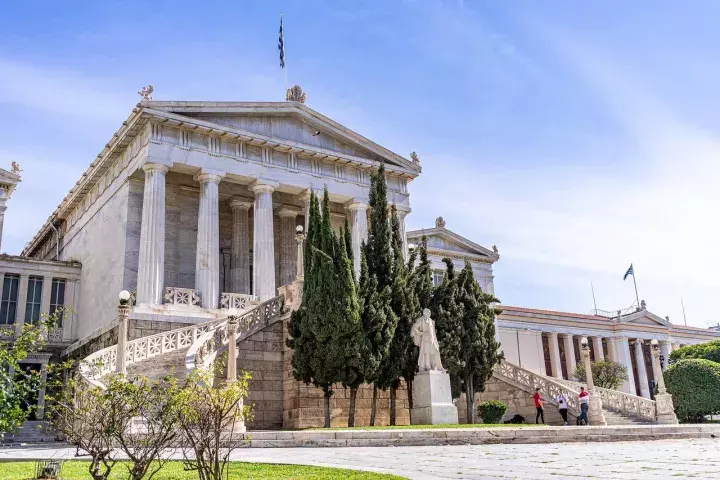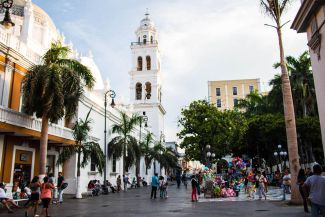
Recently, the Greek authorities made 170,000 diplomas from one of the country’s leading universities accessible through the official government portal, reports Greek City Times.
How to use diploma abroad
According to the United Nations, over 280 million people worldwide work or study in countries other than their own. For some, this is a conscious choice — a chance to explore the world or seek new opportunities. For many others, moving abroad is a necessity.
People are often forced to leave due to war, environmental disasters, or the lack of opportunities to earn a living. Regardless of the reason, moving to another country brings challenges, one of the most common being the recognition of educational qualifications.
Diploma holders may need to complete two fundamentally different procedures:
- Nostrification (also called “equivalency” or “accreditation”) – the official recognition by state authorities that a foreign diploma is valid in the country;
- Legalization – verification of the authenticity of the document.
These procedures are often confused, but they are fundamentally different and not interchangeable.
During nostrification, the authorities confirm that a person with a foreign diploma has the qualifications required for certain professions — such as a doctor, teacher, or engineer.
Legalization, on the other hand, confirms that your diploma is genuine. Legalization is usually required before nostrification—or even when nostrification is not necessary.
If the countries involved do not have an agreement for automatic recognition of documents, legalization can be done in one of two ways, depending on the situation:
- Apostille (if both countries are parties to the 1961 Apostille Convention);
- Consular legalization (if at least one country has not ratified the Convention).
For an apostille, it is enough to place a special stamp (the apostille) on the document or an equivalent digital mark on its electronic version (e-Apostille)
The procedure for consular legalization is much longer, more complex, and more expensive. It involves certifying the document at the Ministry of Foreign Affairs, Ministry of Justice, or another authorized body in the country of origin, and then at the diplomatic mission of the country where the document will be used.
Without either an apostille or consular legalization, a university diploma will most likely not be recognized abroad. Around the world, cases of fraudulent educational documents continue to emerge. Such incidents recently occurred in Kenya. Thousands of holders of fake diplomas and certificates were employed in public service.
Ironically, the largest number of forgeries were found within the Department of Internal Security and National Administration. A total of 103 employees in this department were found to hold fraudulent educational documents. The phenomenon was widespread. Among those who submitted fake diplomas when applying for jobs, four were even employees of the Kenya School of Government.
University World News notes that Kenyans falsified primary school certificates, secondary school diplomas, and university degrees. In addition, there were cases of altered grades and the use of diplomas belonging to other people.
For this reason, it is understandable that employers want to verify the authenticity of educational documents, especially when they are obtained abroad.
How Greece has simplified the verification of university diplomas
Greek authorities have launched a dedicated service that provides electronic versions of diplomas from national universities. Recently, 170,000 diplomas from the National and Kapodistrian University of Athens—the oldest and one of the largest universities in Greece—were made available on the platform.
Access to the diploma database is available through the Greek government portal or via the online service.
To obtain an electronic diploma, you need to:
- Select the service “Higher Education Degree”;
- Log in using your TaxisNet credentials and social security number;
- Download the digital diploma, which includes a unique verification code and an enhanced digital seal.
If necessary, the diploma can be sent by email or printed on paper. The recipient can easily verify its authenticity using the dedicated service.
To use an electronic diploma abroad, it can be apostilled through the portal http://e-apostille.gov.gr/.
Overall, the electronic service provides access to 740,000 diplomas from 23 Greek universities, with 128,000 already uploaded by graduates.
Among the universities participating in the system are Aristotle University of Thessaloniki, International Hellenic University, Democritus University of Thrace, the Hellenic Open University, and others.
The service was developed with the involvement of the Ministry of Education, Religion and Sports, the General Secretariat for Information Systems and Digital Governance, the National Research and Technology System of the Ministry of Digital Governance, and the National and Kapodistrian University of Athens.
What is an apostille?
What is an apostille? Why do I need an apostille? How do I get an apostille? - Our video will explain everything you need to know about the apostille. If you have a document that needs to be certified with an apostille for use abroad, Schmidt and Schmidt will assist you! We provide apostille services in more than 100 countries worldwide.





